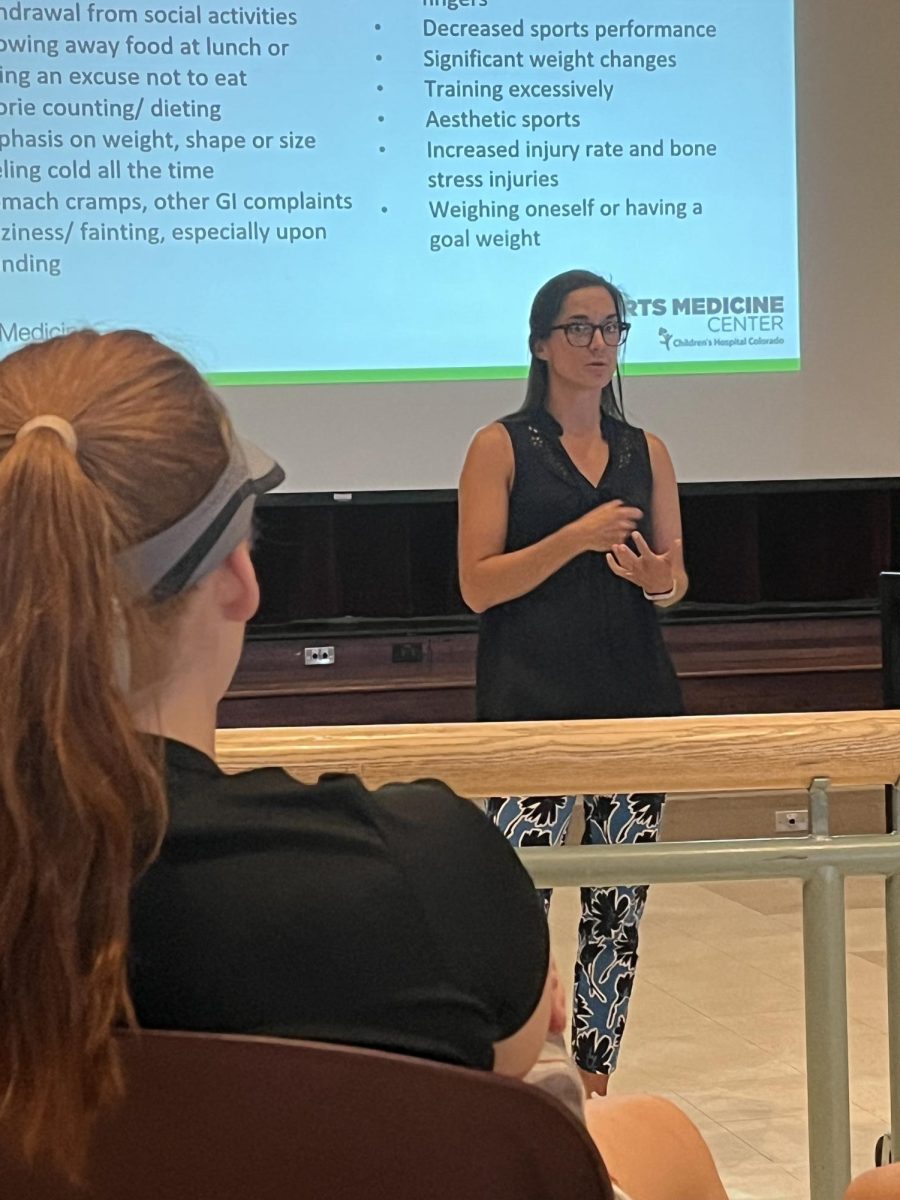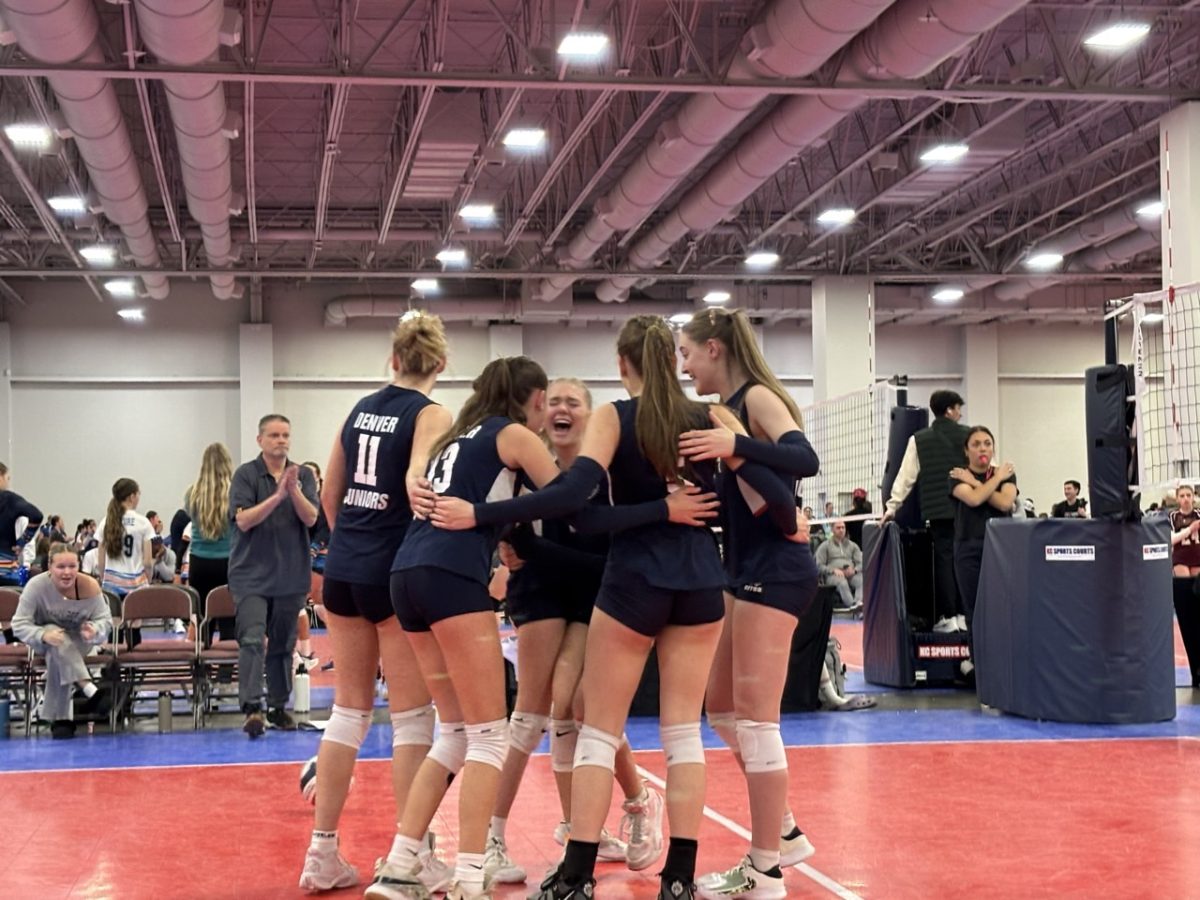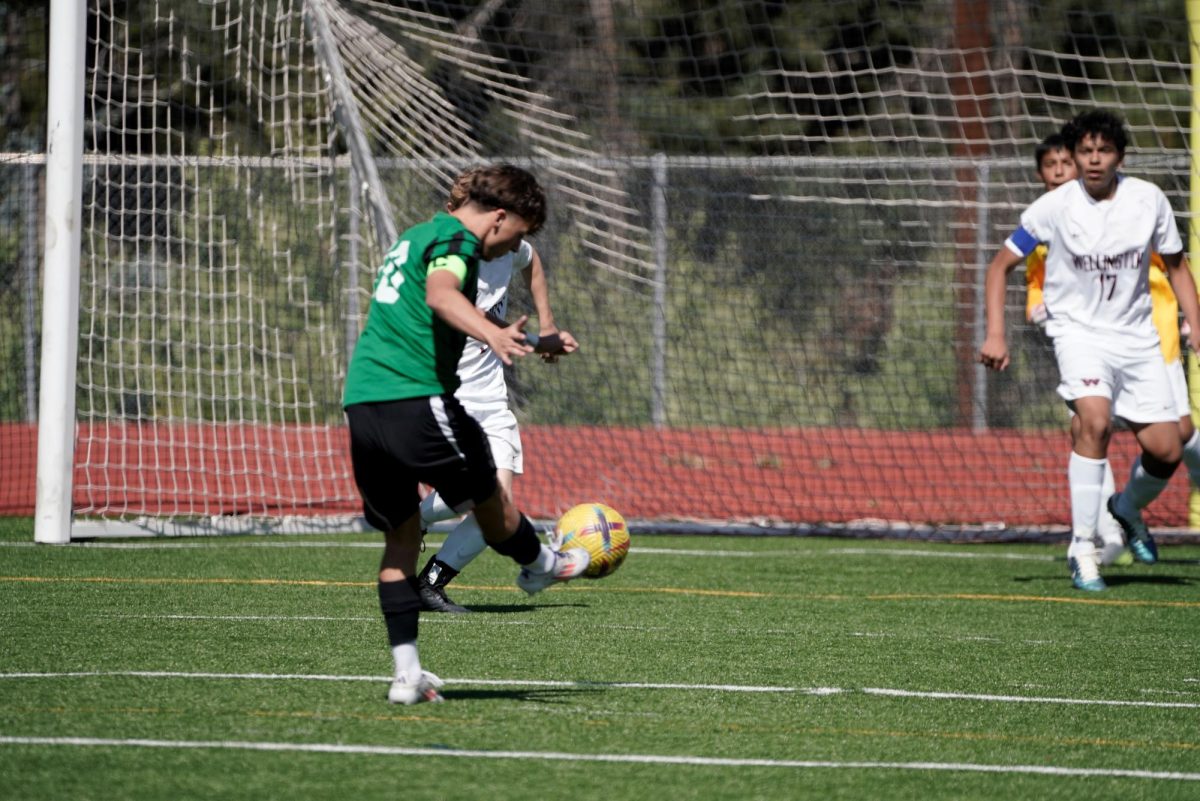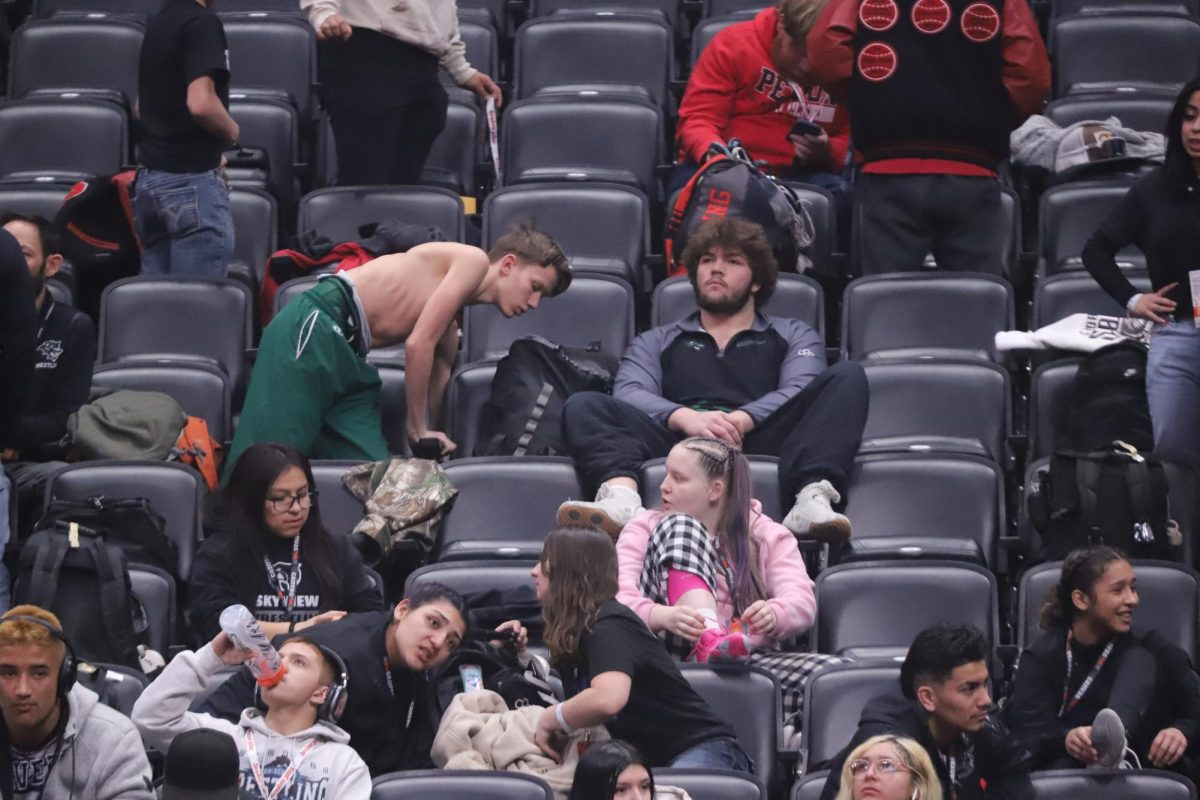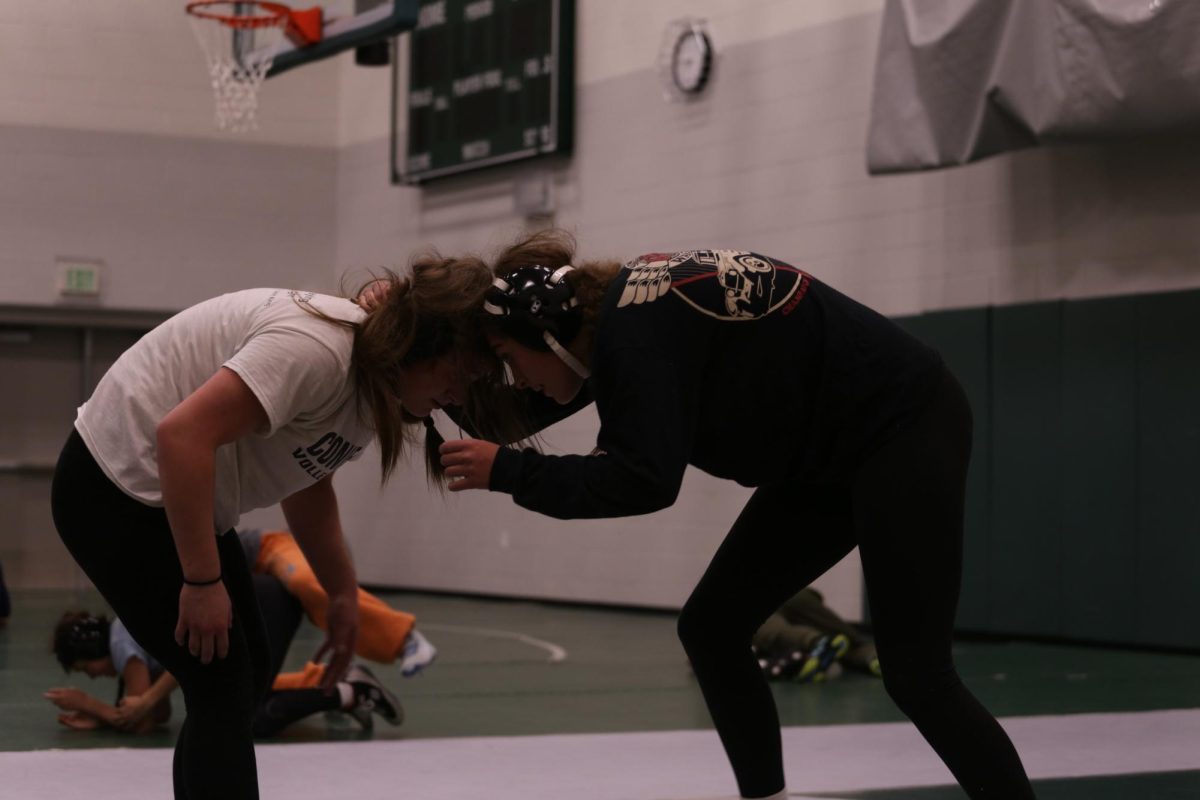Conifer High School’s in-season female athletes attended a nutrition seminar hosted by Children’s Hospital sports dietician Stephanie Wilson on August 27. The talk focused on identifying eating disorders and disordered eating as well as proper nutrition for female athletes. While the talk was held specifically for in-season female athletes, all Conifer athletes, regardless of gender or sport, were invited to attend.
During her presentation, Wilson focused on the effects of low-calorie intake and what and how much athletes should be consuming daily. Conifer’s athletic trainer, CJ Rosenborough, helped arrange the talk on Wednesday after learning that two dietitians had been added to the Jeffco Athletic Training staff.
“I know that it is something that our high school population needs and it’s something that I haven’t been able to provide adequately enough because I’ve been stretched so thin, but now I have the reinforcements to do so,” Rosenborough said.
41.5% of female athletes participating in aesthetic sports reported experiencing disordered eating and the effects of low-caloric intake are widespread and long-lasting. During her talk Wilson touched on the difference between eating disorders (anorexia, bulimia, etc.), disordered eating (intentionally restricting calories, skipping meals, and worrying about weight), and under-fueling (not taking in enough calories). She also gave tips to the athletes and coaches present about how to identify signs of these disorders or harmful eating habits in their peers.
“The thing with disordered eating is that if you see it, it hides in secrecy. So if we say nothing, if we ignore it, turn a blind eye, then it’s just going to keep going,” Wilson said.
Wilson focused on the physical consequences of under-fueling and the detrimental effects it can have on an athlete’s health. Two things she mentioned included RED-S and the Female Athlete Triad. The RED-S, or Relative Energy Deficiency in Sport, focuses on the poor health and decline in performance that athletes experience when they are not consuming enough food. These impairments to performance include but are not limited to depression, decreased muscle strength, increased injury risk, decreased coordination, etc. This syndrome affects all athletes regardless of gender, however, the Female Athlete Triad includes hormonal effects that solely impact female athletes.
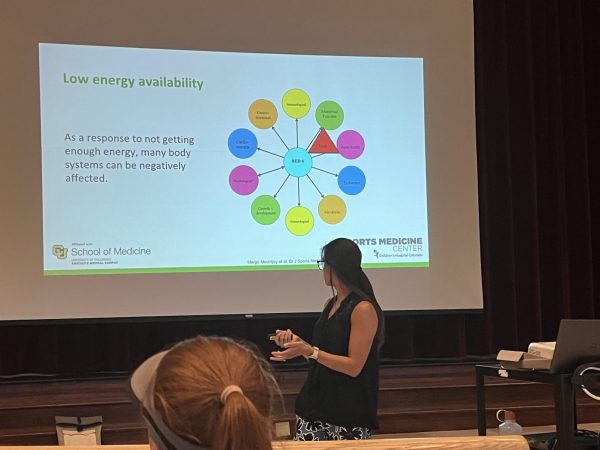
“Females have overarching health concerns that we wanted to address because they have issues with bone health and menstrual cycles. Males can have the same issues but not to the same effect or incident rate,” Rosenborough said.
According to Rosenborough, Conifer has had a problem with female athletes experiencing cases of hypoglycemia, aka low blood sugar, where the affected athlete has no medical reason for the occurrence. These episodes have caused some female athletes to faint during their practices and games, which served as another motivator for the scheduling of the lesson.
“I think it is becoming more acknowledged that this is something that we need to deal with, and that’s always the first step, admitting there’s a problem,” said Laurie Eddy, head coach of the Volleyball team at CHS.
While the talk was centered around nutrition for female athletes, especially concerning the effects on hormones and menstrual cycles, many of the topics discussed also applied to male athletes. No presentation for male athletes has been scheduled yet, however, there is talk of hosting a seminar specifically for Conifer’s male athletes in the spring.
“Eating disorders, disordered eating, low energy availability is not just in the female sport and more and more we see that it is just underreported in male sports,” Wilson said.
Student-athletes need to be eating three full meals a day plus one to three snacks to avoid caloric deficit. Wilson hosted an open forum Q&A session, opening up the floor to debunking or confirming nutritional beliefs held by the audience.
Wilson emphasized that an athlete’s main source of energy and calories should be from real food. She recommended things like protein bars and powder as immediate energy sources, but emphasized the importance of getting three full meals of “food from the food source”.
“To be a top athlete or to be a top student you need to provide fuel to your body and to your brain and I hope that this talk showed them that eating doesn’t have to be a scary thing,” assistant head coach of CHS Varsity Softball Jayme Thompson said.
Disordered eating has been proven to be more common among athletes, although rates of eating disorders among high schoolers were reported to be 5% higher than in non-athletes. Athletes have a higher risk of developing disordered eating habits and the education surrounding these nutritional issues is lacking. In a survey done among athletic trainers working with female collegiate athletes, 27% said they could accurately identify an eating disorder in one of their athletes.
“As an athlete, you’re also responsible for looking out for your teammates and friends, so being more educated on how to recognize and how to be there to help, that’s part of the talk,” Rosenborough said.
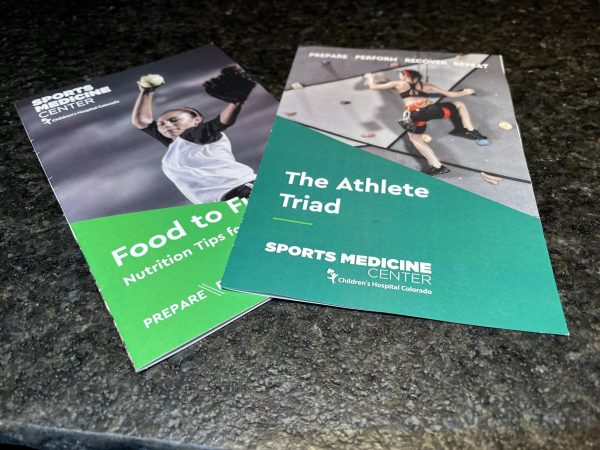
The conversation around disordered eating among athletes is typically limited. Presentations such as these in addition to the increased presence of dietitians among athletic trainers aim to increase awareness of these disorders as well as combat stigmas surrounding food and eating.
“I hope that moving forward they realize food isn’t a negative thing in their life,” Thompson said.
Female athletes at Conifer have struggled with eating disorders and disordered eating and have also shown negative attitudes toward food, and these problems are prevalent at all levels. Talks like the one held on August 27 are specifically aimed at increasing education and eliminating the silence that surrounds disordered eating and eating disorders.
“A lot of girls already have eating disorders or just problems with their bodies, so I found a lot of better ways to find it in my teammates and people around me,” said Emily Bunchman, a player on the level 3 volleyball team at Conifer. “I have a few teammates that I know struggle with calorie counting, so I have been keeping an extra watch on them.”
